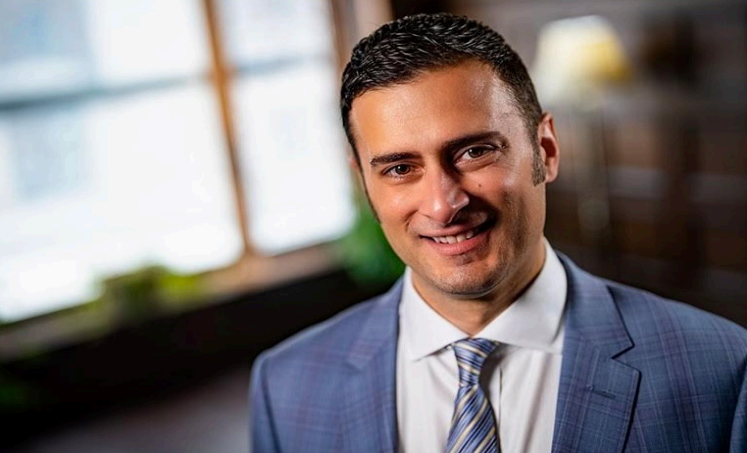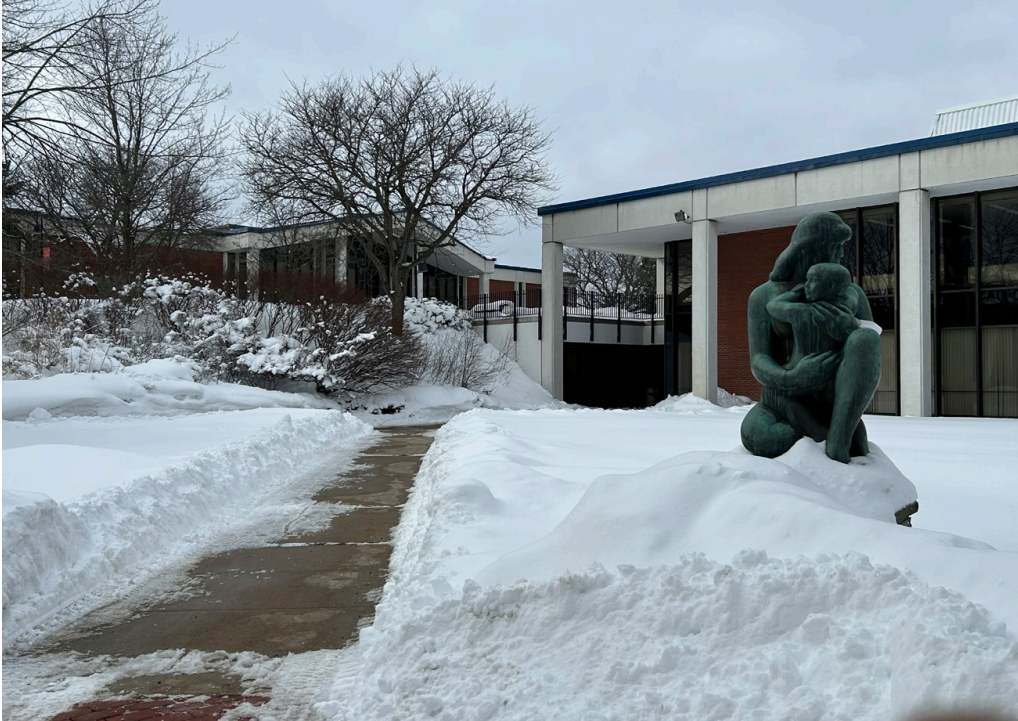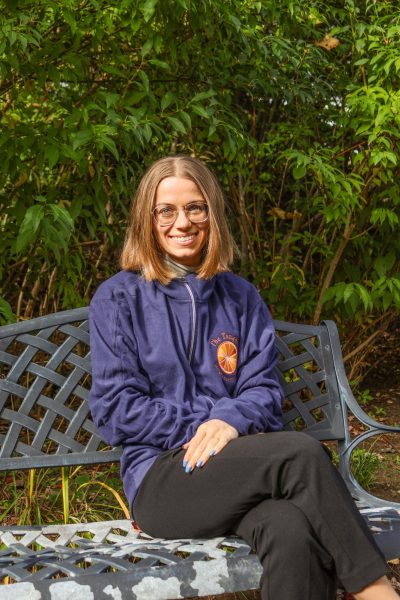
Originally from Nepal, Ujjwal and Grace Rai sought refuge in the United States and then settled in Utica. And since 2020, they’ve been sowing into the community.
Everyone has their own way of belonging in Utica, Ujjwal said, “But for me and my wife, this is a place we came to and a place where we feel welcome and we feel home. I want to make sure to do everything to better the community. That’s a place of gratitude and pride I come from.”
The couple opened Muju International as an online grocery store during the COVID-19 pandemic. A year later, they opened the doors of their brick-and-mortar shop at 1026 Champlain Ave.
In July 2022, they opened a kitchen that serves fresh Nepalese and Indian food like momos, butter chicken and Nepali chowmein, all receiving rave reviews on Google. Now they’re working on becoming a marketplace where vendors can sell their food products.
A Utica University alumnus and current student at the Harvard Kennedy School in Cambridge, Massachusetts, Ujjwal is on a mission to direct money away from chain restaurants and tech giants like DoorDash and Grubhub to the local economy with an app called “Chula” he co-founded with developer Aayushi Batra.
Chula is a cook-to-consumer platform where cooks and farmers list meals they make and produce they’re selling directly on the app. From there, users can input their zip codes to order home-made meals or produce boxes in their area.
According to Ujjwal, the economic market was already there because everyone has someone in their circle of family or friends they call to make a specific meal for a party — they just need a platform to sell it. Starting in the restaurant business is impractical for some because overhead costs are a problem, he said.
“It’s like purposely, these policies are made to deter people from coming into the business,” Ujjwal said.
The app allows aspiring cooks to sell meals without facing the costs of opening a restaurant and also serves as a way to keep local money in the community. Apps like DoorDash charge almost 25-30% commission from restaurant owners per order, eliminating a lot of local money, he said.
Muju is not a commission tree, Ujjwal said, as it does not claim percentages from cooks and farmers who sell their goods on Chula. He’s making the app free to benefit users and vendors in the community. He hopes the app will spread from Utica to other cities in New York State.
“I want it to go out into Syracuse and Ithaca and say, this came from Utica, instead of saying a big company or restaurant is coming to us and taking our pride,” he said.
Ujjwal said the user’s dollar provides more value to the local cook or farmer than spending the same amount on delivery apps. Once a user has entered their zip code, people who are cooking in the area pop up and the user can select their profile to see what they’re offering and whether the meal is listed for pick-up, meet-up or delivery.
Inzi Shaik, a 29-year-old software engineer, was one of five cooks offering meals during Chula’s pilot testing.
“I’m glad I have a chance to be the first,” Shaik said. “I see the future for the Chula app now.”
For his first dish, Shaik made goat curry and said he’s figuring out what sells among diverse customers in Utica. Cooking is a passion for Shaik and he doesn’t have the money to set up an industrial kitchen and store. He looks forward to offering more Indian dishes on the app.
Cuisines during the pilot week included Indian, Puerto Rican, Nepalese, Jamaican and Dominican food.
“We want to be part of something that has value,” Ujjwal said. “Buying from McDonalds doesn’t have a shared responsibility and community. We need to contribute to the community, for everyone to contribute for the community to be sustainable…it builds the community and brings a sense of pride. We’re creating value that’s sustainable.”
The pilot project was launched on Oct. 17, and six people beta-tested the app with the official version set to launch at the end of November. However, in the current version, payments were in dollars, but in the latest update, dollars are converted into points which merchants can then reconvert into dollars as an incentive to keep users coming back to the app. The app is altruistic, Ujjwal said, so users will be able to read the bios of the cooks to learn why they are cooking and what they’re raising money for.
Besides trying to boost the community’s economy and reclaim its local food sovereignty, Ujjwal hopes Chula will reduce the carbon footprint through consumers buying local produce rather than products traveling through the country in trucks to reach Utica.
Ujjwal added: “The solution to all of these problems is bringing these three stakeholders on the same platform.”











































































































































